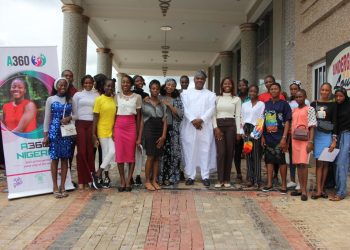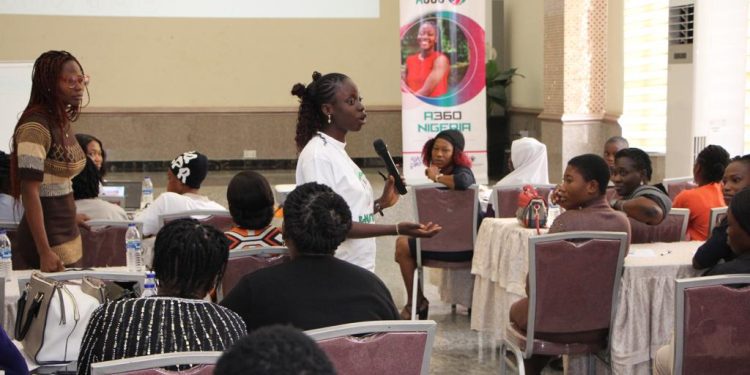No fewer than 853 adolescent girls in Ogun state have benefited from Society for Family Health (SFH) Adolescent 360 (A360) program aimed at reducing barriers to access and increasing voluntary uptake of modern contraceptives by adolescent girls.
The initiative, implemented by SFH, was to improve the sexual reproductive health of girls aged 15–19 while helping them achieve their dreams and succeed in life.
The Director of A360 Project, Roselyn Odeh said Dubbed 9JA Girls program is holistic approach that frames contraception within the broader context of life, love, and health by providing girls with access to sexual and reproductive health information and services.
She noted that the program seeks to increase the prevalence rate of modern contraceptives (mCPR) and ensure a brighter future for adolescent girls in Nigeria.
“To deliver the economic strengthening adaptation in Ogun state, SFH partnered with the Royal Heritage Health Foundation (RHHF) as an implementing partner. The programme ran in batches that took a girl approximately 3-4 months to complete and girls were enrolled on a rolling basis.”
Giving a brief on the A360 Economic Strengthening (ES) program, Odeh noted that the long-term impact of the program is for Adolescent Girls to have improved agency and financial resources to lead the lives they desire.
“Basically, evident in the girls’ ability to make informed decisions that involve the control and allocation of resources, financial independence, and establishment of a sustainable business.”
She stated that SFH implemented and evaluated an economic strengthening pilot that layers on top of A360’s SRH programming which is designed to improve adolescent girls’ economic and health outcomes.
According to her, “This study was designed to assess the effectiveness of A360’s Economic Strengthening adaptations in improving outcomes related to economic empowerment and girls’ autonomy while amplifying the core SRH program outcomes.”
She also noted that the intervention has two anticipated outcomes which include adolescent girls (aged 15-19) having the knowledge, agency, and support to pursue economic autonomy; and adolescent girls (aged 15-19) being equipped with adequate knowledge to make informed health decisions and choices.
Speaking on the positives of the program, Odeh highlighted that the project impacted 853 girls as they participated in goal-setting moments, financial upskilling sessions, vocational skills-building activities, mentorship programs, empowerment collectives (savings groups), and community events (marketplace) where the girls are celebrated, certified and given the opportunity to showcase their newly acquired skills”.
She stated that “Girls are being recognized as serious economic actors in the community. The graduation moment provides a chance for girls to be recognized formally for their contributions. Girls’ savings groups serve as a way to keep girls connected as the groups provide peer support and reinforce the importance of having an enabling environment toward the achievement of one’s goals.
“Motivations for girls’ goals include having financial independence, pursuing a career or furthering their education, starting or growing a business, and financial preparedness in terms of ability to support themselves and sometimes their family.
“Skills acquisition is one of the most popular components of the program as girls understand the importance of having a skill and how it can transcend financial stability for them in the future.
“The economic strengthening program in Ogun state recorded tremendous impacts as presently, 853 adolescent girls from Atan, Etere, and Otun communities in Adodo Ota LGA have graduated from the program.
“127 girls have initiated businesses after exposure to the Economic Strengthening and have continued to engage in income-generating activities, 278 upskilled and expanded their businesses while 136 and 546 girls got employed and re-enrolled in school respectively. Others have enrolled in apprenticeships to further sharpen their skills. 381 girls have so far joined the 15 savings groups formed while also investing and saving individually.”


